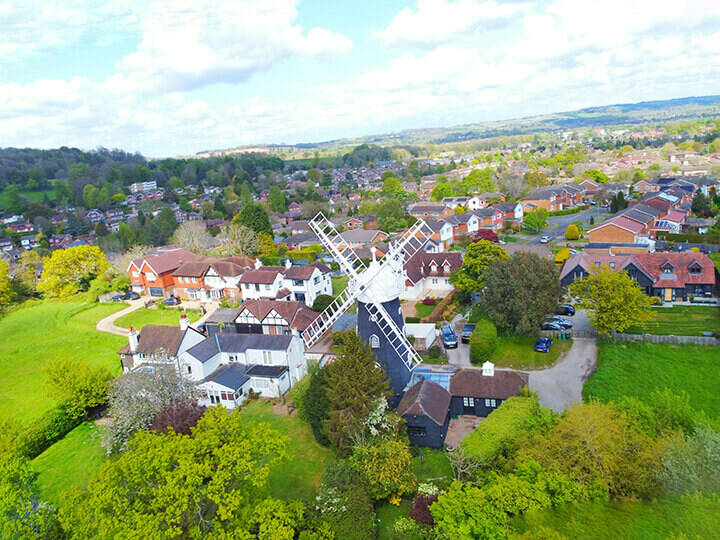Exemplar Award Winner- Winner NLPG NSG Exemplar Award ‘Citizen’s Award and winner of the 2010 Exemplar Award: West Oxfordshire District Council
Best example of a project which delivers services to citizens underpinned by the NLPG/LLPG or the NSG/LSG LLPG
The expiry of an existing contract for Waste and Recycling enabled West Oxfordshire District Council’s Environmental Services team to undertake a complete review of its service provision in this area.
The council regained ownership of its data, matched it to its Local Land and Property Gazetteer (LLPG), and integrated it with its new Customer Relationship Management (CRM) system. This, together with a data capture and improvement exercise, not only enabled the council to ensure an accurate and competitive tender process but also to achieve very high levels of citizen take-up for the new services.
West Oxfordshire’s IT, Communications, Customer Services and Environmental Services departments have been working closely for over a year in preparation for the introduction of fortnightly collections of household refuse and free garden waste, alongside weekly collections of recycling and food waste.
A significant part of this exercise focused on data improvement. Old CRM data and data from the existing waste and recycling contractor were matched to the LLPG and are now held within a new CRM system linked to the relevant UPRN to access the customer’s address, property type and state. This has resulted in a central database of customer waste preferences and requirements which remains dynamically linked to the LLPG. During this exercise, LLPG property information was important in identifying commercial properties which would not be included in the new provision, and flats and other properties, such as churches, with special collection requirements.
With the data updated, the council could now use its CRM to produce targeted, personalised and relevant mailings to all of its 46,000 residential addresses to enable full engagement with citizens. The initial mailing was segmented into over 20 different letter types.
Outcomes
The mailings provided citizens with two ways to sign up for new services: by phone and by the web. Postal returns were considered too expensive. Even without this channel, the take-up has been impressive with more than 30,000 out of a possible 46,000 signing up for the new garden waste recycling service.
Over 12,000 citizens chose to use the online forms on the council website to sign up for the new services on offer, representing a considerable shift to the most cost effective channel. SOCITM suggests that each web transaction costs 1p compared to a phone transaction cost of £1.36, resulting in considerable savings for the council. In addition, the decision not to use the postal channel has saved the council at least £70,000 in terms of extra print, post and data capture costs. There has not been one single complaint about the lack of a paper form to return, vindication for the decision to stick to two channels.
Another benefit of the mailing process was the additional property state intelligence gained from returned mail. Royal Mail nondelivery comments were investigated and the LLPG state code updated to ensure the waste contractor does not collect from properties that are vacant, under construction or up for demolition. This also ensures that they are always using the most efficient routes.
The success of the take-up of the new services will result in further savings for the council as the increased amount of waste being recycled will significantly reduce the tonnage going into landfill, which is currently costing councils across Britain £48 per tonne.
Citizen returns and data matching also revealed some anomalies. Owners of properties that, in the past, had been deemed unsuitable for wheelie bins, for reasons such as inadequate access, had applied for and were using wheelie bins for garden refuse collection. This enabled the council to provide these properties with bins for normal biweekly waste collection instead of the more costly weekly black sack service.
Citizens phoning to report missed bin collections or other problems with their waste and recycling are now accurately identified by the new system, enabling the call centre to initiate an appropriate response. Reporting via web forms on the council website go directly to the contractor.
Key benefits
- LLPG is now used for council mailings, improving citizen engagement
- The property information held within the LLPG facilitated accurate customer segmentation
- Customer survey for garden waste services has improved property information, particularly in flats
- Channel shift to the web has accounted for over 40% of the sign up to the new services
- Reduced costs – customers are keen to self-serve and use the web, the least cost channel
- Repeat complaints and missed collections are now apparent and have initiated site visits to prevent reoccurrence
- Commercial properties have been removed from the residential service and the number of assisted collections reduced, bringing cashable savings
- Clear communications and citizen engagement will lead to improved recycling rates and reduced cost for the council.
View from the authority
“This has been a cross-service project involving West Oxfordshire’s IT, Communications, Customer Services and Environmental Services departments working closely together to deliver new and vastly improved waste and recycling services. The LLPG’s UPRN has underpinned all our efforts, enabling us to tailor communications to individual customer requirements, link to the CRM in our call centre and with forms on our website. The result is better citizen engagement, more accurate service provision and smoother operational working.”
Sarah Turner, Business Solutions Manager, West Oxfordshire District Council



